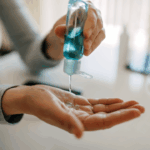
When it comes to preventing the worst outcomes of a COVID-19 infection, there’s more and more evidence now that scoring a "D" – a daily dose of vitamin D – is the performance level you want to achieve.
An Israeli study, published in early 2022, is the latest in a vast series of COVID-19 studies to find that individuals with insufficient vitamin D levels seem to get sicker than those with higher blood levels of the vitamin.
In published results labelled as “striking,” half of the patients with low baseline vitamin D levels went on to become seriously ill. Meanwhile, less than 10% of those with higher pre-existing vitamin D levels got sick. Previous studies have noted the connection between vitamin D levels and the course that COVID-19 takes among its patients. Still, researchers couldn’t be sure whether the D levels were low to begin with, or dropped during COVID-19 treatment.
This latest study is the first to look at people’s vitamin D levels before the onset of the illness. These newest results need confirmation in larger study samples. Because the Israeli study was conducted before the emergence of the Omicron variant, updated research would also reveal whether these results hold with the more infectious variant. But at least one scientist involved in the Israeli study is confident the results will hold up. Dr. Amiel Dror of Galilee Medical Center, the home of the research, points to vitamin D’s already proven ability to bolster the immune system against attacks on the respiratory system. “This is equally relevant for Omicron as it was for previous variants,” he told Business Insider.
The Israeli researchers say that ensuring we get adequate vitamin D from sunlight or supplements appears to be a factor in how we’ll cope with an eventual COVID-19 infection. Others await upcoming research, warning that correlation doesn’t necessarily mean causation. But the consensus is that vitamin D alone is not protective against COVID-19, and it is not a substitute for getting vaccinated and boosted. The scientific community also reminds us that underlying health conditions play a role in how sick we get from COVID-19. The Israeli team responsible for the latest published results concluded that vitamin D levels pre-illness are essential indicators. But vitamin D levels remain “one piece of the complex puzzle” we’re still putting together regarding COVID-19 and its variants.














